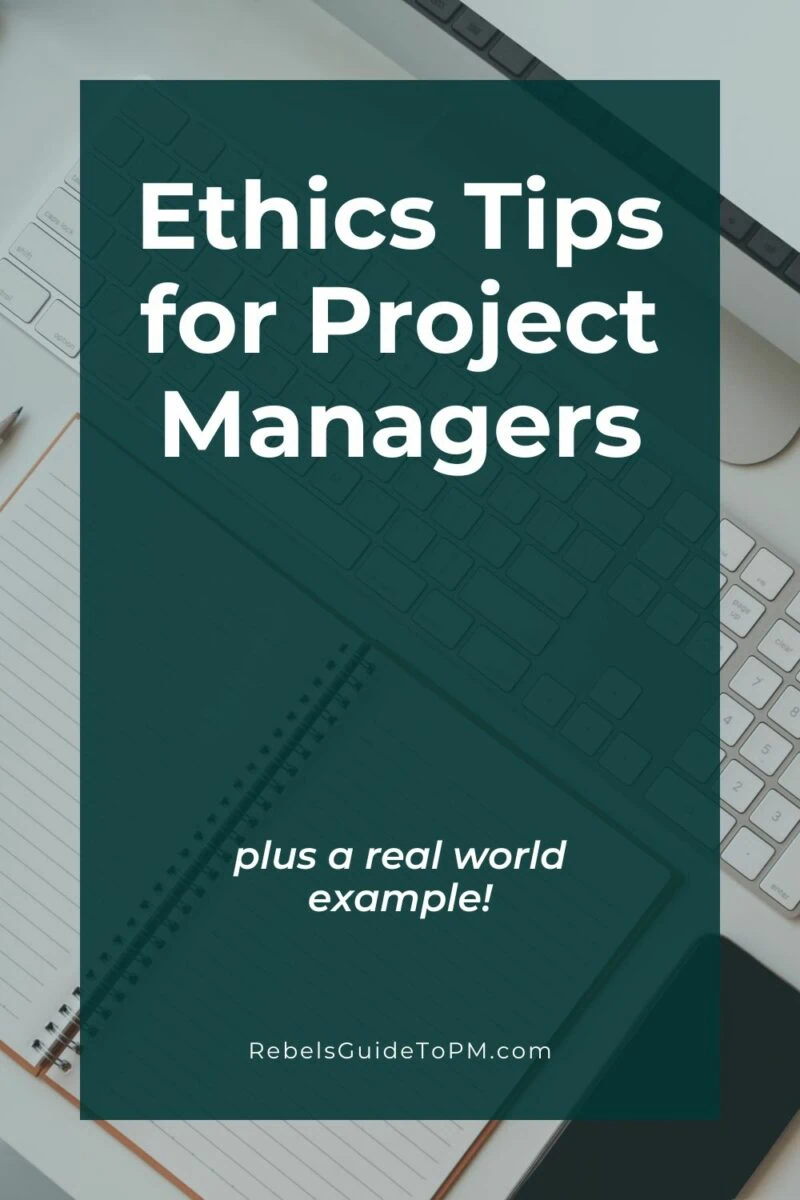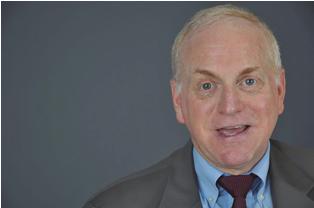7 Ethics Tips For Project Managers
This blog is reader-supported. When you purchase something through an affiliate link on this site, I may earn some coffee money. Thanks! Learn more.
A project manager approached me recently with a problem. She knew that some of the data that was being submitted in internal reports was — frankly — made up. It was made up with the best intentions from educated guesses and extrapolation.
It’s probably fairer and less controversial to say that it was ‘estimated’ rather than created totally randomly from scratch. But she was worried that other people were interpreting the estimate as definite fact.
That didn’t sit quite right with her (and she didn’t know she was a perfect example of a project management ethics case study when she was telling me the story!).
What is Ethics in Project Management?
PMI defines ethics like this:
What are ethical issues in management?
Here are some examples of ethical issues in project management that you might face:
- Being asked to share confidential information
- Being asked to give more favorable consideration to one vendor in exchange for gifts or kickbacks
- Making hiring choices that are not purely influenced by who would be the best candidate for the job
- Being asked (or required) to give bribes in order to expedite work.
Generally, ethical dilemmas come up when you’re dealing with two individuals (or groups) that may have different agendas and expectations. Another core skill you need as a project manager is being able to deal with conflict, because that’s how a lot of ethical situations start, or end up.
However, you could also have a long standing, friendly relationship with someone and that can also put you in an ethical minefield.
Later in this article is an example of an ethical scenario that Jeff Furman found himself in on a project. You’ll soon start to be able to spot where these kinds of challenges come up.
The importance of ethics in project management
The PMI website says:
And it’s not hard to see why you get these positive benefits on project when you act in an ethical way.
Being able to act as a credible, trusted leader is dependent on you and your team making ethical choices about how you manage and lead the work.
Certain cultures and industries will expose you to more ethical dilemmas than others. Generally in our office-based IT landscape the project manager in question (and myself) don’t get asked to take bribes for issuing contracts or anything like that.
I’m lucky to get a e-Christmas card from vendors, to be honest.
I joke, but really, ethics in project management isn’t a joking matter. Your professional values will be tested on complex projects.
You may also be asked about ethics in project management interviews.

The PMI Code of Ethics and Professional Conduct
The PMI Code of Ethics and Professional Conduct defines a set of standards for how project managers should behave. Consider it the standard for behavior.
It’s very short, it’s easy to read, and it’s free.
If you a PMI certification holder, volunteer, member or in some other way connected with PMI, the organization will expect you to meet the requirements of the PMI Project Management Code of Ethics as part of your day job.
If you are getting ready to take the PMP exam, you should know that the Code of Ethics and Professional Conduct is a reference document for the exam questions.
Yep, that’s correct: the PMBOK® Guide isn’t the only reference book you need to look at.
I recommend practicing with an exam simulator so you can see the kinds of questions that might come up — there’s also an example question and a worked answer below. Scroll down for that.
Ethical guidelines in project communications policies
You can include a statement about communicating ethically in your project communications plan. The plan can include the principles and guidelines you commit to sticking to as a team that values ethics in communications.
For example, you can include the following principles:
- We will communicate honestly, transparently and in good faith.
- We will make sure our communications are clear, concise and timely.
- We will communicate openly and with the right stakeholders.
- We commit to active listening as we believe communication is a two-way process.
Documenting the ethical communication principles of transparency, honesty, timeliness, openness and clarity in your communications plan can help you if there is a conflict situation later.
Let’s say a stakeholder wants to share something that isn’t quite true, or a manager is delaying a communication because it’s bad news. You can direct them to the approach laid out in the communication plan, as that is what they would have agreed to at the start of the project.
It might not help in every case, but having these communication statements laid out for everyone to see can help you deal with a wide range of project management ethical dilemmas if they come up.

How to deal with ethical issues in project management
Dealing with these ethical grey areas isn’t an everyday occurrence for most project managers, but you should know what to do when something doesn’t feel right.
Here are some tips for making sure that you stay within professional boundaries and never put yourself in situations where you feel you could compromise the project, your reputation or your business.
1: Disclose your interests
So your brother’s company is pitching for work? You know that he’s the best at the job, but you need to remove yourself from the project procurement activity. Tell your sponsor or your PMO manager that you feel there is a conflict of interest.
You need to make sure that no one feels he landed the contract because of who he is related to. That will do you both a good turn when he starts work.
2: Don’t use assets from your last job
I am a huge fan in using templates and making the most of what you have so that you don’t reinvent the wheel. But if your old company had a fantastic set of design principles for websites, you can’t get them out and slap your new company’s logo on them and start putting them in front of clients.
You can’t unknow what you know, so you can use your interpretation and your knowledge to create a set of design principles allied to the values of your new organization but informed through all of your professional expertise.
It’s quite likely you were hired because of the experience you gained elsewhere. This might seem like a grey line but it’s really not.
Don’t reuse assets from your last job. If nothing else, they are probably protected, with proprietary IP and your old contract may have specifically outlined what you can and can’t do with company property.
3: Don’t leave information out deliberately
Leaving out information on purpose is lying by omission. It’s what happens when you can get round difficult questions by failing to include the one piece of information that wasn’t technically asked for but that might change everything.
For example, if you are asked if your project is on schedule, you could reply: “Right now we’re sticking to the plan.”
That gives the client the impression that all is well. However, if you know that there is a huge risk coming round the corner that’s probably going to push you off course next month then you’ve deliberately left out information that would give them the complete picture.
This isn’t honest or transparent and you are better than that. It’s giving your clients a poor service and doing a disservice to your team as well.
Remember, you may get asked ethics questions on your
4: Be brave
Stand up for what you believe in. Don’t be afraid to call people out on their behavior.
You hear someone making offensive remarks: say something. Don’t be bullied and don’t let other people be bullied either. This is where your leadership skills can make a real difference.
I know a project manager who quit her jobs because she didn’t want to work on initiatives developing weapons. I know another who left the tobacco industry because it didn’t sit well with their values.
Whatever your values are — and even if you can’t quite articulate them you’ll know when you see or are asked to do something that just doesn’t feel right — stand by them.
Life is too short to compromise on what is important to you.
Read next: The Truth about Bullying in Project Management
5: Challenge decisions
Another important aspect of holding other people (and yourself) accountable is that you can challenge decisions.
You should always feel that your sponsor is open to hearing your opinions about the project. You have been trusted with delivering this piece of work on their behalf and they owe you the time to listen to your opinion if you think something is going off piste.
Challenge the wrong decision. Talk to your sponsor about why you feel like that. They may well overrule you and go with what they want to do anyway, but you’ll have had your chance to make your point and you may well be able to convince them that an alternative path is better.
Never let the fact that someone is in a more senior position than you stop you from speaking up when you have a legitimate dissenting view and can present it articulately and professionally.
Confidence is one of the most important skills for project managers, and it’s very important in an ethical situation.
6: Don’t ask your team to do unpaid work
US employees work 46 billion unpaid overtime hours per year, so let’s not contribute to that.
Yes, some people may love their job so much they don’t mind putting in a bit of extra effort every so often, above and beyond the hours they are contracted to work.
But generally you’ll find that there is a limit to your colleagues’ generosity when it comes to putting in extra effort for your project.
Asking them to do unpaid overtime isn’t on.
If they volunteer for whatever reason, then that’s different. And you can say no, even to volunteers. Don’t pressurize your colleagues or “encourage” them to do more than they are prepared to do. They have families. Bills to pay. Be respectful of their time and their loyalties.
7: Don’t play favorites
Whisper it: there are people on the team that you’d go out for lunch with and others that you just wouldn’t.
Humans are social creatures. We are drawn to making friends, but not everyone finds themselves in the ‘potential friend’ category. Even people we don’t like much have to work for a living.
The good news is that you don’t have to like everyone at work. You just have to be able to work with them. That’s a level of professionalism that isn’t beyond you.
However, if it’s clear that you have favorites on the team, people notice. Fairness is important. So don’t take a junior direct report out to lunch once a week because you have a lot in common and then ignore the others in the team.
If you can’t treat all your staff fairly, don’t create situations where you are treating them differently. Lunches are on rotation, so everyone gets time with you as their manager and mentor. Or don’t have 1:1 lunches with anyone at all, and meet as a team for social gatherings outside of your formal team meetings — arguably that’s better as you get to keep work professional and carve out separate team time for social interactions.
OK, so that’s how to deal with ethics in real life. But what about when you face ethics questions on the
I turned to Jeff Furman,
Here’s what he had to say.
Example PMP exam question
Here’s a project management ethics example exam question from Jeff Furman,
Q. The sales rep for a software vendor and his lead engineer fly in to your city to demo their new product for you at your office, hoping to persuade you to buy it for your company. They know you are also evaluating a competing product, and they ask you to show them their competitor’s tool, which you currently have installed in trial mode on your desktop. They tell you that seeing the other tool would help them better tailor their software product for you. What is the best way to handle their request?
A. Show them the product, but say: “Remember, it’s confidential information.“
B. Diplomatically tell them you can’t accommodate their request.
C. Say no, and inform your management of this incident ASAP.
D. Say no, and Tweet about the incident to the Twitterverse (or X as we should call it now).
Which answer would you choose if this were an ethics question on a test, like the
Let’s look at the 4 choices:
“A” – Is unethical, but also would be illegal if the project manager had signed a non-disclosure agreement, which they probably would have prior to the evaluation. (The best way to see why it’s unethical is to put yourself in the shoes of the competing vendor, who trusted you to trial their product).
D – May sound silly, but many people actually do vent about vendors on the internet nowadays, sometimes at their own legal peril.
So the choice comes down to B or C. B is Just say no, where C is Say no + Disclosure.
As you might have guessed, this is a real-life ethics case study.
I (Jeff) was the project manager in this incident years ago. At the time, I had no doubt that “No” was the right answer, and in acting on B I thought I was doing the correct, though difficult thing, in refusing to grant the request of this vendor.
And my decision was made more difficult by the fact that I had known this vendor for several years.
I was thinking at the time that others in my position might say yes, in the hope of getting a better deal from the vendor (or even just a Homer Simpson-style free lunch).
“Why didn’t I inform management at the time? I thought I had handled it but years later our company wound up being burned by this sales rep.”
But maybe you chose C which would have been the best choice. And if I could have a do-over (like my hero, Bill Murray in Groundhog Day!) I would definitely have informed my senior management about the incident.
If you did choose C, you would have been in agreement with PMI’s Code of Ethics and Professional Conduct, especially two clauses:
- Clause 2.2.5 (Responsibility, Aspirational Standards): We protect proprietary or confidential information that has been entrusted to us.
and
- Clause 2.3.2 (Responsibility, Mandatory Standards) : We report unethical or illegal conduct to appropriate management and, if necessary, to those affected by the conduct.
Why didn’t I inform my management at the time? Well, I thought I had handled it and it was a done deal (Problem solved!) and there was no need to make trouble. Also, I thought my busy manager might not appreciate my throwing a hot mess onto his desk.
But years later, whatta ya know, our company wound up being burned in a different way by this very same sales rep. We would have avoided this, had I disclosed the issue at the time, and given my manager and the company’s senior leadership the chance to take action on it.
Sticking within your ethical boundaries is not difficult: it should be part of the fabric of who you are and how you work.
About Jeff: Jeff Furman,

